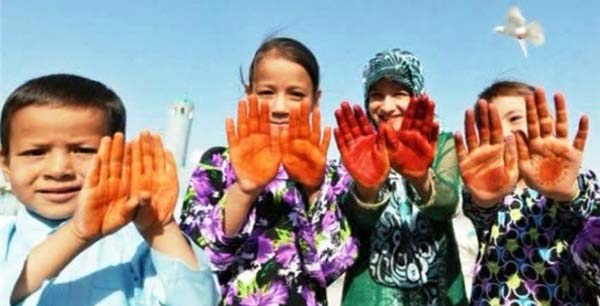the heavy casualties inflicted upon our nation, especially in holy month of Ramadan, embittered the Eid. The victims left a bleeding wound in the hearts of their family members. On Eid Day, the vacuum of a kind father, a sympathetic mother, a caring sister, a loving brother or a sweet child will have been more salient. For the families, saddened by the death of their members, redness of henna was reminiscent of the blood oozed from the riddled bodies of their beloved ones and white raiment would remind them of shroud wrapped around inanimate bodies of the victims.
The civilian and combatant casualties in recent months are tired of making headlines on national and international newspapers. Similarly, our bleeding nation is weary of war and violence going on across the country. Life is really cheap in Afghanistan and no one’s rights – including their fundamental rights i.e. rights to life, liberty and property – are respected.
The horrible consequence of more than a decade of war in Afghanistan is undeniable. Militant attacks targeting highly-populated areas, Improvised Explosive Devices (IEDs) hidden throughout the countryside and airstrikes on villages have often been cited as the primary causes of high civilian casualty rates.
Civilian and military deaths in coalition air strikes have been one of the most emotive and high-profile issues of the 13-year Afghan war, often provoking fury from the government. As a result, reports say that a US air strike killed at least 10 Afghan soldiers Monday at an army checkpoint in a Taliban-infested province south of Kabul, the latest “friendly fire” incident involving foreign coalition forces. District governor Mohammad Rahim Amin is cited that the targeted outpost was “not a suspicious area. The Afghan flag was waving at the checkpoint in Baraki Barak when the Americans launched their attack.”
The bombing in Baraki Barak district of Logar province comes after a similar NATO air strike in the area in December killed five civilians and wounded six others.
While “friendly fire” incidents involving foreign coalition forces are a deeply contentious issue in Afghanistan, UN statistics show that the Taliban are responsible for most deaths.
Civilians often fall victim to such attacks, with almost 1,000 Afghan civilians killed during the first four months of the year, according to the UN mission in Afghanistan.
The escalated militancy has likely put Afghan officials on a collision course that could lead to mistrust. For instance, the heavy casualties of a particular ethnic minority arouse the suspicions of some authorities and make the political issue more puzzling for them. Being left unable to unravel the mystery, the wall of mistrust establishes among the officials. Similarly, contrary to some, few of the state officials think pessimistically about peace negotiation, thus, they are in favor of military approach against the Taliban insurgents. Nowadays, the tone and tenor of some officials are really serious against the militants who are operating under the names of Taliban and Daesh. In spite of the peace negotiation between the Taliban and Afghan officials, civilian and military casualties rise with each passing day. This is a major reason behind the pessimistic view of some high-ranking officials. The question which arises in the mind of every Afghan citizen is that will peace negation reduce civilian casualties?
There are mainly three groups with triple attitudes towards the Taliban and their policy and one will receive various answers to this question. Afghan Peace Council and Afghan president are working energetically in the hope of positive result. On Eid Day, Afghan president thanked the Taliban’s reclusive leader Mullah Omar for announcing that negotiation leads to peace. Afghan former president Hamid Karzai – who worked tirelessly to bring the Taliban on the table of negotiation – will also favor peace parley.
On the other hand, a group of high-ranking officials such as General Ata Muhammad Noor and First Vice-president General Abdul Rashid Dostum have formed a coalition against the Taliban insurgents. Exhausted and furious with the Taliban’s summer offensive, which has led to heavy casualties in Northern provinces, they prefer military deal to peace parley and no more trust the Taliban. Hence, they believe that the Taliban are playing their usual game that will never bear the desired fruit. A third group also exists which plays the role of spectator. In other words, a number of authorities express their decision with the ebb and flow of political situation. They are followed by a group of simple citizens. They all deem the negotiation as a game but the winner remains ambiguous. In short, they are ready to cheer and boo with the government’s victory or defeat.
However, the public are highly frustrated with the status quo and pray for peace and security. Besides mounting insecurity, Afghan citizens suffer from unemployment and economic recession. A large number of youths attempt to flee the current challenges through taking refugee from the country. Nonetheless, others have to grin and bear it.
The real Eid to be celebrated is to get rid of the current dystopia and have “a civil society void of oppression, atrocity, discrimination as well as violence, based on rule of law, social justice, protecting integrity and human rights, and attaining peoples’ freedoms and fundamenta�����������������l rights”. The real Eid is when democracy bears sweet fruit in our country and Afghan nation be able to breathe in a peaceful environment.

